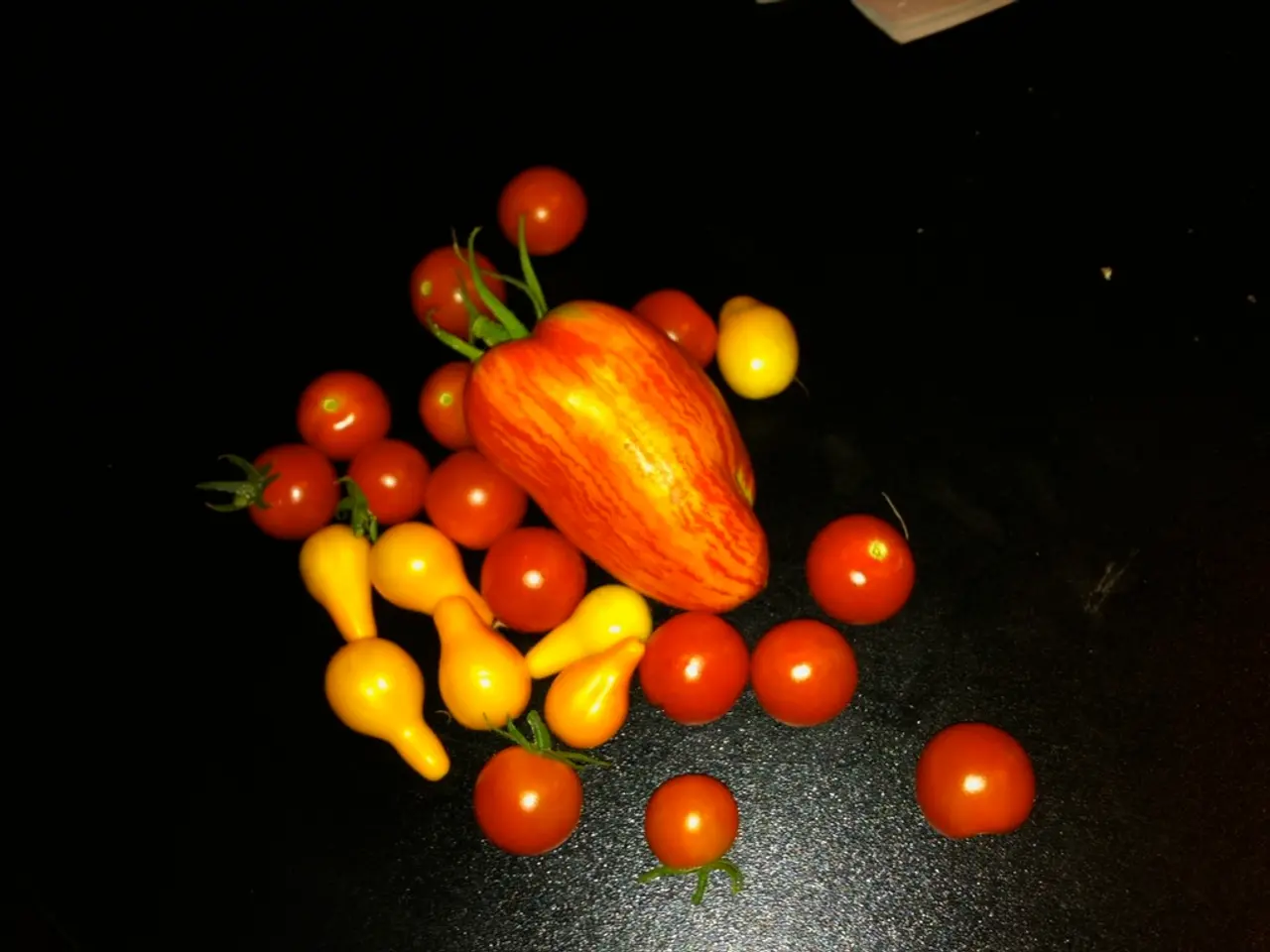Twin Studies Highlight Potential Link Between Nutrition and Depression Risk
Dealing with depression can be a real struggle. Traditional methods like prescription medications often fail to work for more than two out of three people. Even when they do provide relief, the side effects can be a headache—literally and figuratively. From nausea to weight gain, constipation to low sex drive, the antidepressants' downsides can make dealing with depression even harder.
But worry not! By making some simple changes to your diet, you can naturally manage depression symptoms. And the secret starts with what you eat.
One study conducted by the University of New South Wales' Centre for Healthy Brain Ageing involved over 3,400 twins aged 45 and up from Australia, Denmark, Sweden, and the U.S. The participants' fruit and vegetable intake was followed for over a decade. The findings? Consuming more fruits and vegetables is linked to lower symptoms of depression over time.
Interestingly, even the high fruit and vegetable intake categories still fell short of recommendations of most countries. For instance, the American Heart Association suggests consuming four to five servings of fruits and vegetables daily, yet the average intake was less than half the World Health Organization's recommendation of at least five servings per day.
But worrying about hitting the exact number of servings can be overwhelming. Break it down across each meal, and you'll soon find that it's easier than you think to reach the goal. Fresh produce isn't the only option either. Frozen produce, which is typically minimally processed, makes a healthy choice as well.
Berries, especially, are packed with antioxidants that are known to fight disease. One landmark study showed a single cup of berries could provide an entire day's worth of disease-fighting antioxidants, making them a worthy addition to your diet. Dark, leafy greens and citrus fruits are equally valuable due to their high folate content, a vitamin essential for the synthesis of neurotransmitters involved in mood regulation.
Moreover, a diet rich in fiber-rich fruits and vegetables positively impacts the gut-brain axis, further contributing to better mental health. The significance of the gut microbiome and its influence on depression is becoming increasingly recognized due to its potential impact on inflammation, both systemic and neuroinflammation.
So, eat up! The body of evidence suggests that higher consumption of fruits and vegetables as part of balanced, nutrient-rich dietary patterns is linked to reduced depressive symptoms and improved mental health outcomes. Embrace the power of these simple, yet mighty foods to help you weather through those tough times!
Editor's Note:
Did you know that maintaining an alkaline body can boost your energy, aid weight loss, soothe digestion, ward off illness, and set you on the path to ultimate vitality? Discover The Alkaline Secret to Ultimate Vitality here to revamp your life today!
References:
- Gomez-Pinilla F. Brain foods: the effects of nutrients on brain function. Nat Rev Neurosci. 2008;9(7):568-578. doi:10.1038/nrn2421
- Jacka FN, O'Neil A, Opie R, Berk M. The role of nutrition in the prevention and treatment of depression. CNS Drugs. 2010;24(8):589-619. doi:10.2165/11599810-000000000-00000
- Mellempsted S, Wichers S, Schene AH, Hoogendijk W, Attema EC, Van Heck GT, Hofman A, Penninx BW, Smit F. Diet quality related to treatment response in first episode pharmacotherapy of major depressive disorder: Intent-to-treat analysis of a randomized controlled trial. PLoS One. 2014;9(10):e110243. doi:10.1371/journal.pone.0110243
- Deeg DJH, Hofman A, Van Tilburg TGW, Kempen HA, Penninx BW. The Australian longitudinal study on women's health 2001-2010: Stressful life events, depressive symptoms, and inflammation. Int J Geriatr Psychiatry. 2013;28(3):248-254. doi:10.1002/gps.3454
- Martin CR, Stein MB, Goisman T, Christiansen SJ, Croft JB, Broman GD, Ivie MA, Margolis KL, Thuns JG, Agénor M, Curb JD, Waehner SE, Obrigny T, Choi H, Sang YP, Lee MJ, Kim HJ, Kim YC, Shaffer LM, Wong PY, Timiras PS, Clemens WG, Mednick SA, Woodward M, Olson JR, Liu J, Le May H, Steingrimsson E, Schork NJ, Lessov-Schlaggar CE, Lambert PW, Lander ES, Risch N, Kendler KS, Kubzansky LD, Ambler A, Kawachi I. The impact of diet on major depression: results from the diet and healthy aging study. Psychoneuroendocrinology. 2017;87:65-74. doi:10.1016/j.psyneuen.2017.03.019
- Incorporating a balanced diet rich in fruits and vegetables, as per scientific research, can help manage depression symptoms naturally, with consumption of these foods linked to reduced depressive symptoms and better mental health outcomes.
- The importance of a healthy gut microbiome, influenced by the diet rich in fiber-rich fruits and vegetables, has become increasingly recognized in its potential impact on inflammation, both systemic and neuroinflammation, further contributing to mental health.
- Overall, following a diet emphasizing wellness through abundant fruits, vegetables, and nutrient-dense choices supports optimal health-and-wellness, fitness-and-exercise, mental-health, and overall inflammation reduction, promoting overall better health and psychological wellbeing.








